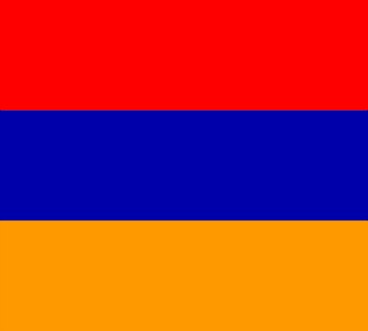Mr. Speaker, I rise in my capacity as Chairman of the Helsinki Commission to voice concern over Armenia’s refusal to register select religious groups and the continuing harassment of certain religious communities, actions which violate Armenia’s commitments to religious freedom as a participating State in the Organization for Security and Cooperation in Europe (OSCE). Honoring the commitments enshrined in the Helsinki Final Act and subsequent OSCE documents would ensure Armenia upholds the freedom of the individual to profess and practice religion or belief, alone or in community with others.
With respect to registration, Armenian law requires all religious communities and organizations, other than the Armenian Apostolic Church, to register with the government. Obtaining registration is critical if a religious community wants to carry out basic functions, like renting property, publishing newspapers or magazines, broadcasting programs on television or radio, or officially sponsoring the visas of co-religionists or visitors.
To acquire registration, a petitioning religious organization must obtain an “expert opinion” from the government, in which four questions from Article 14 of the Freedom of Conscience and Religious Organizations Act must be affirmatively answered: (1) Is the religion based on a historically canonized holy book? (2) Does its faith belong to a system of modern worldwide religious church communities? (3) Is it of a purely spiritual orientation, not created for the pursuit of material goals? (4) Does it have at least 200 believing members, not including minors? A negative finding by the government on any of the four questions will terminate the registration application.
This type of approval system is extremely problematic, as it places the government in the role of determining what is or is not a religion, allowing it to make highly subjective decisions. For example, the government refuses to recognize the Jehovah’s Witnesses as an official religion, despite having more than 6,000 Armenian members. Other small groups, including approximately 50 Baptist communities, are unable to pass the numerical threshold, so are not qualified to apply for registration. As a result these groups are indiscriminately denied basic rights enjoyed by those which have the government’s stamp of approval.
Last September, Prime Minister Andranik Markarian reportedly stated that the Armenian Government must curb the activities of minority religious communities, even if these actions violate Council of Europe obligations. Mr. Speaker, considering this type of bias, I urge the Government of Armenia to revamp the registration process to prevent arbitrary or politicized decisions. Abolishing the registration requirement and ensuring any system facilitates, rather than hampers, the free exercise of religious freedom for individuals and communities, by methodically granting legal status to groups which seek registration would help bring Armenian policy into conformity with OSCE commitments.
Even more alarming is the Armenian Government’s continued imprisonment of conscientious objectors, particularly from the Jehovah’s Witnesses faith. According to the State Department’s 2002 Anual Report on International Religious Freedom for Armenia, military and civilian security officials subject Jehovah’s Witnesses who refuse to serve in the military to harsh treatment, because their refusal is seen as a threat to Armenia’s survival. One particular example is the case of Araik Bedjanyan, sentenced on July 2nd to 1½ years in a labor camp for refusing military service. Mr. Bedjanyan was sentenced under Article 75 of the criminal code, for “evasion of active military service.” There are currently 24 Jehovah’s Witnesses serving sentences for being conscientious objectors on religious grounds. Suren Hakopyan and Artur Torosyan, whom police arrested in Yerevan on July 3, are currently awaiting trial along with six others for their refusal to serve in the military. Seven more Jehovah’s Witnesses are reportedly under house arrest for the same “crime.” Despite Article 75 being replaced by Article 327 in the new criminal code, the amendment only reduces the potential sentence from three years to two.
One of the conditions for Armenia’s admission to the Council of Europe in January 2001 involved the adoption of a law on alternative military service conforming to European standards within three years. However, while drafts continue to circulate, no laws have been passed that provide for alternative civilian service outside the framework of the army. In the meantime, conscientious objectors continue to receive harsh sentences. Should the Armenian Parliament pass such a law, the service length should not be punitive in nature, but rather be comparable to military service requirements.
As Chairman of the Helsinki Commission, I urge the Armenian Government to abide by its OSCE commitments regarding religious freedom. Armenia should overhaul its registration scheme, dropping the registration requirement, and liberalize its system for bestowing legal personality to religious communities and organizations. Furthermore, all Jehovah’s Witnesses currently imprisoned for “evasion of military service” should be unconditionally freed, and a law in line with Council of Europe standards for alternative military service should be passed as soon as possible.



